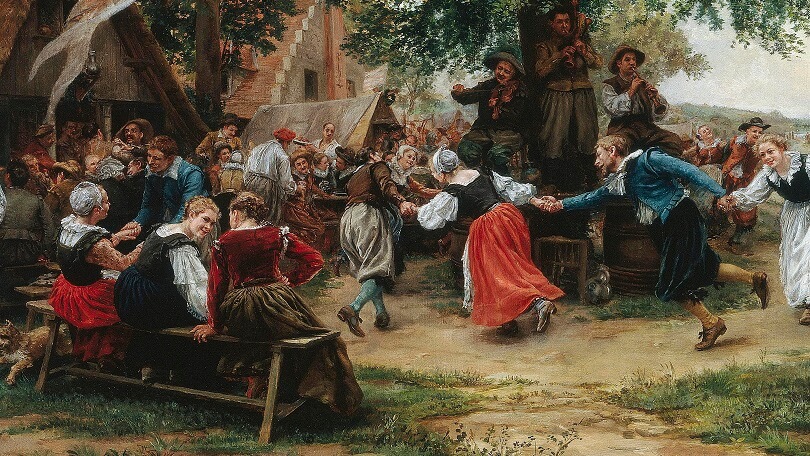In your sociological studies, you may have come across these two words. Yes, the eminent sociologist Ferdinand Tunnies coined these two concepts in the field of sociology.
In Germany, these words are used to describe a certain group of people. These ideas were designed to help people better grasp the differences between living in the city and life in the country, respectively.
Gemeinschaft Vs. Gesellschaft
Societal prestige is earned via hard effort and education in Gesellschaft, but in Gemeinschaft, social connections are more important.
Families are thought to have the purest form of gemeinschaft, and the phrase gemeinschaft may be found in families. However, religious organizations provide a perfect illustration of gemeinschaft.
Both of these names were coined in 1887 to characterize the two main forms of human relationships. Because these phrases have different meanings, it is much simpler to grasp them if you know what they signify.
Gemeinschaft
Gemeinschaft (German for “community”) is a phrase that may also be translated as “neighborhood”. Ferdinand Tunnies, a sociologist, coined the phrase initially. His primary goal was to use this phrase to describe members of society who are united by a set of shared values.
Instead of focusing only on their personal wants and requirements, the persons, in this case, were stated to have believed in good behavior and upholding their duties. Although the phrase is difficult to pronounce, its meaning is straightforward.
It may be achieved by either the ownership of the inventor in the case of a gemeinschaft organization, for example. This term was coined by Ferdinand Tunnies as a result of the strong ties that exist among this group. There is a great deal of emphasis on family and personal ties.
Gemeinschaft is a small-scale civilization, yet it has a strong relationship and tremendous shared ideals, and there are many advantages to it. We should expect to see this kind of culture in most small cities, where individuals tend to concentrate more on their own interests.
Gesellschaft
The word “Gesellschaft” refers to social relationships based on impersonal connections, such as a responsibility to an organization or a specific society. A civic society where the needs of each person are given the highest attention is what this phrase refers to.
Larger corporations have less of an impact on smaller ones, hence common values and norms tend to be scarce or nonexistent in these groups. Individuals in a self-interested society behave and strive to further their own goals.
Managers, employees, company owners, and contemporary companies are all good examples of Gesellschaft individuals. The accomplishment of work or the job is required to join Gesellschaft.
A significant division of labor may be used to classify the Gesellschaft society’s organizational structure, and this may explain why these organizations can grow to enormous proportions. Because of this, many major cities have a culture where individuals are very self-absorbed.
Because they believe that social bonds have no value, this particular subset of individuals does not adhere to them. They also don’t pay attention to the ideals of the community since the wants of the individual are prioritized.
Difference Between Gemeinschaft and Gesellschaft
- Formal or contractual connections in society are more closely associated with Gesellschaft than with informal interactions among individuals.
- Social links are more important in Gemeinschaft society than in Gesellschaft society.
- In the gemeinschaft society, status is earned via birth, but in the Gesellschaft society, status is earned through hard effort and education
- A large city is a place where you’re more likely to observe Gesellschaft than you are to see gemeinschaft.
- Families are an example of gemeinschaft, whereas managers, business people, and employees are instances of Gesellschaft.
Conclusion
Finally, the distinction between these two phrases explains everything since people often misunderstand the two meanings. Since each word has a distinct meaning, understanding both is essential.
These expressions are no longer commonly heard and have been replaced. These phrases have been replaced mostly due to the rise of industry, urbanization, population increase, and many other factors. A new social order, the society of contracts, has supplanted the old order of tradition.
A great deal has changed between “now” and “then” in modern society because individual interests, personal responsibilities, and conventional rights are no longer accorded as much weight as they once were. Every aspect of modern life has altered the thoughts of individuals.
However, it is critical that people understand the context in which these phrases were initially used if they are to treat them with respect. The phrase Gemeinschaft emphasizes the importance of family and personal ties. Society, on the other hand, refers to the social interactions that take place outside of the main group of people.

